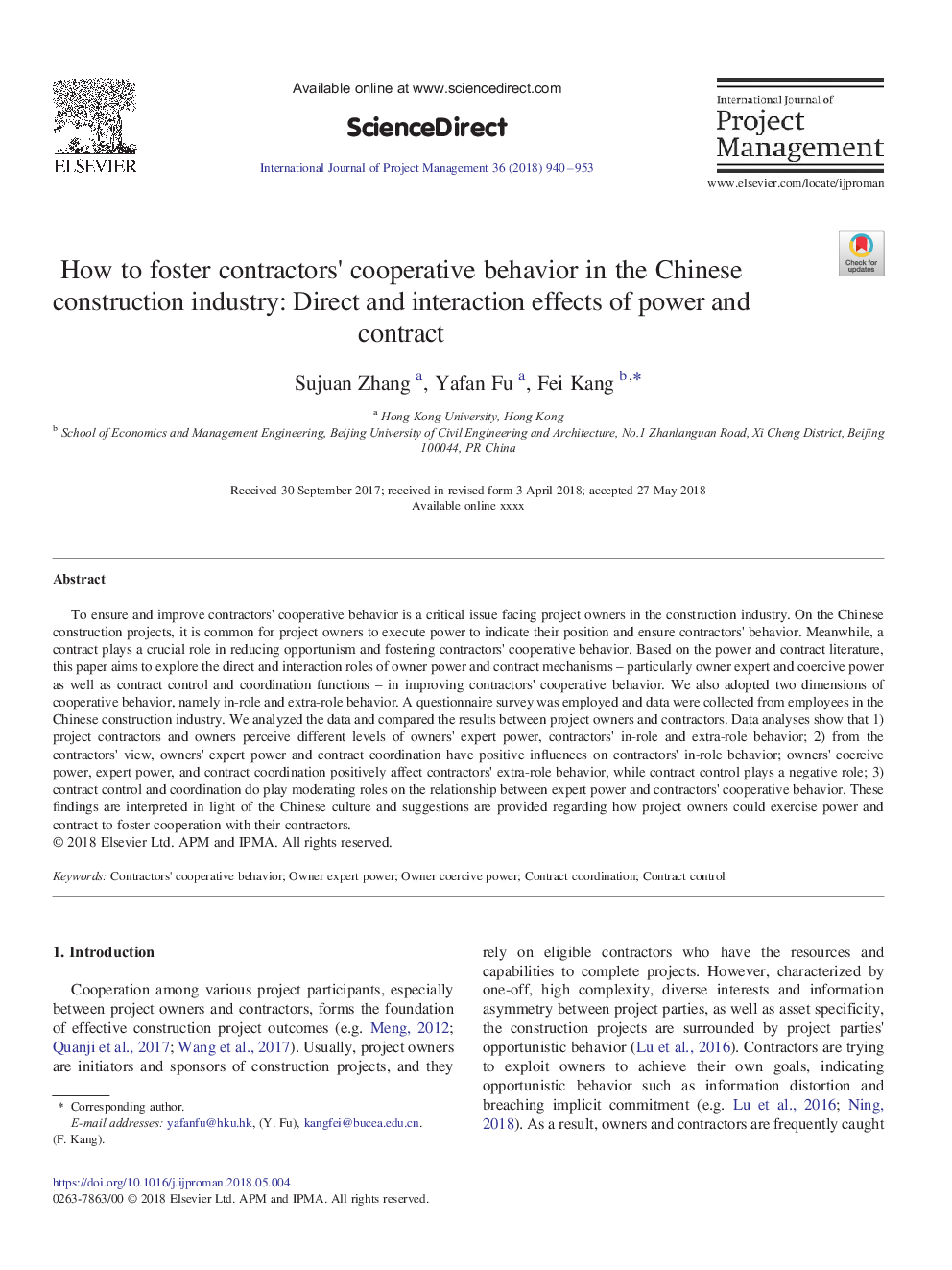| Article ID | Journal | Published Year | Pages | File Type |
|---|---|---|---|---|
| 6747994 | International Journal of Project Management | 2018 | 14 Pages |
Abstract
To ensure and improve contractors' cooperative behavior is a critical issue facing project owners in the construction industry. On the Chinese construction projects, it is common for project owners to execute power to indicate their position and ensure contractors' behavior. Meanwhile, a contract plays a crucial role in reducing opportunism and fostering contractors' cooperative behavior. Based on the power and contract literature, this paper aims to explore the direct and interaction roles of owner power and contract mechanisms - particularly owner expert and coercive power as well as contract control and coordination functions - in improving contractors' cooperative behavior. We also adopted two dimensions of cooperative behavior, namely in-role and extra-role behavior. A questionnaire survey was employed and data were collected from employees in the Chinese construction industry. We analyzed the data and compared the results between project owners and contractors. Data analyses show that 1) project contractors and owners perceive different levels of owners' expert power, contractors' in-role and extra-role behavior; 2) from the contractors' view, owners' expert power and contract coordination have positive influences on contractors' in-role behavior; owners' coercive power, expert power, and contract coordination positively affect contractors' extra-role behavior, while contract control plays a negative role; 3) contract control and coordination do play moderating roles on the relationship between expert power and contractors' cooperative behavior. These findings are interpreted in light of the Chinese culture and suggestions are provided regarding how project owners could exercise power and contract to foster cooperation with their contractors.
Keywords
Related Topics
Physical Sciences and Engineering
Engineering
Civil and Structural Engineering
Authors
Sujuan Zhang, Yafan Fu, Fei Kang,
